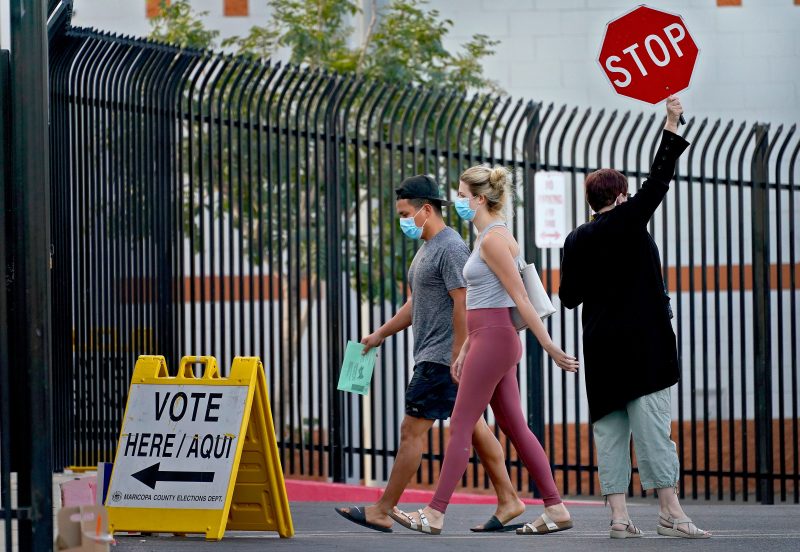
Arizona Schools Fight to Protect Voting Rights amid Threats to Polling Locations
Amidst the current political landscape where voting rights are increasingly under attack, the decision by some Arizona schools to opt out of being polling locations has raised important discussions regarding the role of educational institutions in the democratic process. This move comes at a time when the sanctity of voting locations and access to the ballot box are being challenged across the country.
Arizona’s decision to remove schools as polling locations reflects broader concerns about safety, security, and potential disruption to the educational environment. By choosing not to host polling sites, schools are seeking to prioritize the well-being and educational experience of their students and staff. This decision underscores the need for thoughtful consideration of the impact that hosting polling places can have on schools and their communities.
While schools have traditionally served as polling sites and played a vital role in facilitating democratic participation, the changing landscape of voting practices and the security challenges associated with election processes have prompted a reevaluation of this longstanding tradition. Schools must balance the importance of civic engagement with the need to ensure a safe and conducive learning environment for students.
The move to opt out of hosting polling locations also raises questions about alternatives for ensuring voter access and participation. With the shift towards mail-in and early voting options, there may be less reliance on physical polling sites in the future. However, access to polling locations remains a crucial aspect of democratic participation, especially for communities that may face barriers to voting through alternative means.
As schools grapple with the decision of whether to continue hosting polling sites, it is essential to consider the broader implications for civic engagement and democratic principles. While concerns about safety and disruption are valid, it is equally important to explore ways to balance these considerations with the imperative of ensuring accessible and secure polling locations for all voters.
Ultimately, the decision by Arizona schools to step back from hosting polling sites reflects the complex interplay between civic responsibilities, educational priorities, and the evolving challenges of safeguarding the democratic process. As we navigate these tensions, it is critical to engage in thoughtful dialogue and proactive solutions to uphold the integrity of our electoral system while supporting the needs and values of our educational institutions.
